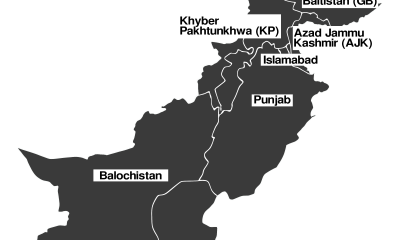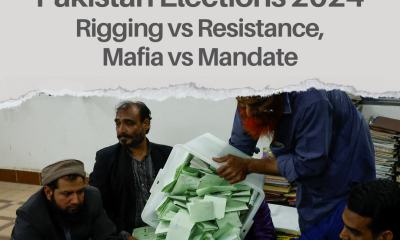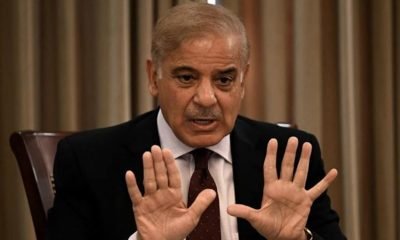Pakistan
Pakistan Deports 1.7 Million Afghan Refugees!
Pakistan is deporting millions of Afghan refugees, many of whom settled in Pakistan during the decades of instability in Afghanistan.

The Pakistani regime called for all undocumented immigrants to leave Pakistan by November 1, 2023, or face deportation, a move that will mainly lead to the expulsion of 1.7 million undocumented Afghan refugees in Pakistan but also impact many Afghan migrants who do have proper documentation.
This decision comes amid a period of economic and political turmoil for Pakistan, and the government is accusing Afghan refugees of being complicit in a series of militant attacks, as well as the surging crime rate in the country.
For context, millions of Afghans have made Pakistan their home in the decades of instability in Afghanistan, particularly during the Soviet invasion in 1979 and the US War on Terror in 2002. According to Pakistan’s interior ministry, 4.4 million Afghans live in the country, and around 1.7 million do not have legal documents. The fate of these millions of refugees now hangs in the balance, as the Pakistani government has decided to force them out of the country.

Over the last few weeks, the police and authorities have been going ‘door to door’ to round up and return thousands of Afghan refugees, who are being arrested without paperwork. They are also facing harassment at the hands of the authorities, with their assets being taken over.

Khaliq Atifi, an Afghan refugee in Islamabad who had worked as a sports journalist in Kabul and fled in December 2021, told Human Rights Watch that since the announcement, even Afghans registered with the United Nations High Commissioner for Refugees (UNHCR) are not immune to detention or deportation. “There are police checkpoints everywhere. Even if you have a valid visa, you will still be transferred to the police station, and in most cases, you need to pay a bribe between PKR 10,000 and 40,000 to Pakistani police to get released.”
Similarly, many Afghans with Proof of Registration cards issued by Nadra are being expelled, insisting that they are not leaving voluntarily but are being forced out and compelled to sell their assets at a significant loss.

It is important to note that most of these Afghan refugees hardly earn enough to feed their families, let alone fund a journey back to Afghanistan. In addition to being evicted from their homes, they are losing their jobs as a consequence of the government’s new policy. Meanwhile, the situation in Afghanistan will remain dangerous for many who flee, and deportation will expose them to significant security risks, including threats to their lives and well-being. Currently, there are thousands of Afghan refugees stranded at the Torkham border, exposed to harsh weather and with very limited resources.
The plan of the Pakistani government to deport Afghan refugees has been met with heavy skepticism and critique over its practicality and impact. Activists and lawyers have heavily criticized the government’s move, saying it violates the fundamental rights of refugees, who are guaranteed dignity by the Constitution of Pakistan.
Some have also analyzed that this decision comes amid the wider economic and political turmoil in Pakistan, and the government is using Afghan refugees as a scapegoat to take the blame for their own incompetence in an effort to gain the support of their populace, which they are losing the favour of every day.
However, the public criticism seems to have no impact on the caretaker government of Pakistan, which, by its very nature, has no public representation and faces no accountability.
“There will be no compromise against illegal refugees. We have data on who [is] staying illegally in Pakistan. We are going door to door, and we have done geofencing. We will detain and deport them. We have arrested dozens across the country so far, including in the capital. Afghans would be put in buses, trucks or whatever [is] available to transport them to the border, and authorities would be tracking them to ensure they [do] not return. ”
Pakistan’s (now illegal and unconstitutional) caretaker interior minister reiterates the State’s cruel and deplorable policy of pushing over 1.7 million Afghan refugees from Pakistan. The statement that reeks of arrogance and apathy comes as Afghan refugees face harassment at the hands of Pakistani authorities and grave uncertainty about what lies ahead of them.
Here are a few stories of Afghan refugees in Pakistan, many of whom have made it their homes for the past many decades.
Abdul Khaleeq has lived in Pakistan for 16 years but is now one of tens of thousands of undocumented Afghans who have made the difficult decision to return to Afghanistan. For him, the pressure to leave became too much. His family borrowed money to hire trucks for the move, which cost them 250,000 Pakistani rupees, leaving them substantially in debt. Moreover, after moving, they will face harsh winters ahead while being short of warm clothes, shoes, or a roof over their heads.
Adeela Akhtar is an Afghan refugee in Rawalpindi. She used to be a school teacher in Kabul and moved to Pakistan 18 months ago after the Taliban took over. Adeela told Al Jazeera she had no idea what the following day would bring for her. “If the police come to my door, I will plead with them and implore them to let me stay. I cannot go back, [and] I don’t know how else to convince them to let me stay here. I have two children living here with me, and I don’t want to put their lives in danger again.”
Akhtar had applied for a Pakistani visa and made multiple visits to the United Nations High Commissioner for Refugees (UNHCR) office to secure the documentation to facilitate her stay, but her efforts were in vain.
Deen Muhammad was born in Pakistan several years after his parents fled Afghanistan in 1982 and settled in a village near Islamabad.
However, the 32-year-old Pashtun street vendor now fears deportation after Pakistan’s caretaker government announced that Afghan nationals living in Pakistan must leave.
“My roots may be in Afghanistan, but in reality, I’m a son of this soil [Pakistan],” he told DW. “My wife and my four children are also Pakistanis by birth, and we have got documents to prove that,” he added.
Shireen Gula fled Afghanistan with her family after Russia invaded the country in 1979. They have lived in Pakistan’s northwestern Balochistan province ever since, working in orchards, and as housekeepers for farmers. Although they have lived for decades in Pakistan, they too now fear deportation.
“We never felt the need for residency documentation. Our lives are limited to the area, and we were never bothered by law enforcement agencies. But now, we are really worried as Pakistani authorities look committed to repatriating undocumented foreigners.”
Shireen is a mother of six children, all born in Pakistan. Her family has no property in Afghanistan to return to. She complained about a lack of information about legal matters, especially their rights as refugees.
Gul Mohammed, an Afghan in his 50s, said he does not know what he would do in [Afghanistan], having lived in Pakistan for many years and with family there.
“I will see what I can do to survive in Afghanistan after I reach there. I have tried to contact those who have reached Afghanistan to know how they are doing, but I failed. Uncertainty waits for many of us.”
Mir Agha, 23, said, “I was born and raised in Pakistan. All my siblings were born here. We had proof of refugee cards given by the UNHCR (UN Refugee Agency), but they were scissored by the police after they arrested us. Pakistan is now home, not Afghanistan, and we will be refugees there. We can’t relate there. We are refugees in both countries. I’m worried about how I will survive and live there.”
Abdullah has hired a truck to bring all 22 of his family members out of the country; 20 of them were born in Pakistan. “I initially came here when the Russian War started. I used to work in a brick kiln as a labourer. There are fewer job opportunities in Afghanistan. I am very sad about leaving my house. I can’t express in words the pain I felt leaving it. Our house was made of mud, and we built it ourselves. I planted many trees there. My neighbours and friends were in tears [when I left]. It’s the cruel government that is making us leave.”
Abdullah says he has been targeted despite having an Afghan Citizen Card, an ID issued by the Pakistani government. He also showed the cards of his entire family. According to the government’s website, this counts as an official document.
Abdullah further added that, despite this, the police raided his house and arrested his sons.
“The government says to go back, even though we have these cards. This level of problem has never happened in the past.”
In Photos: Pakistan Deports Afghan Refugees



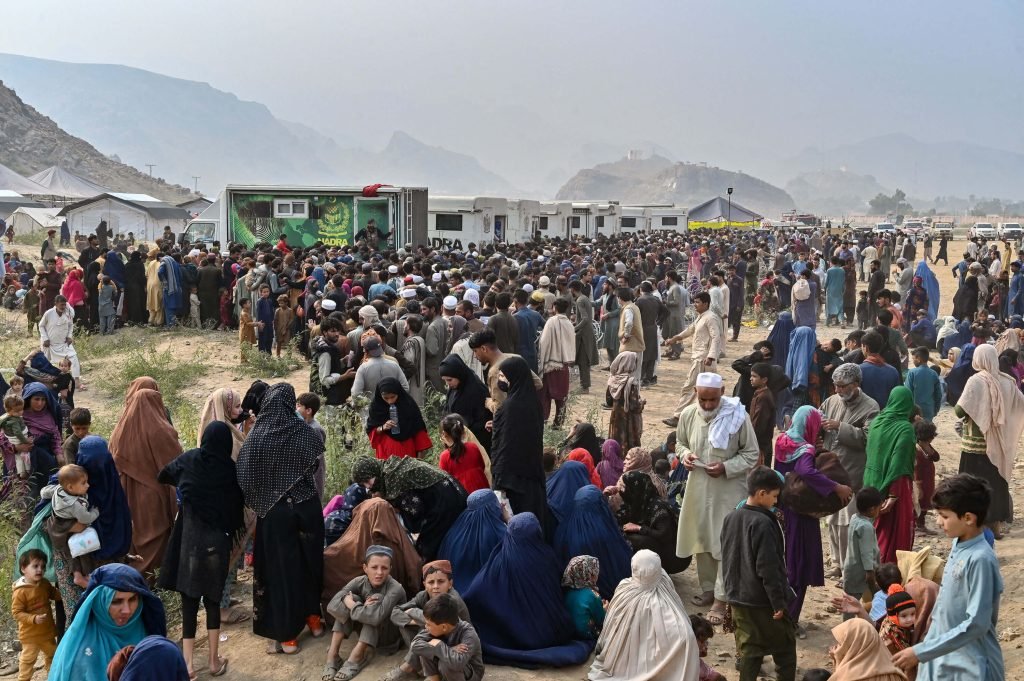


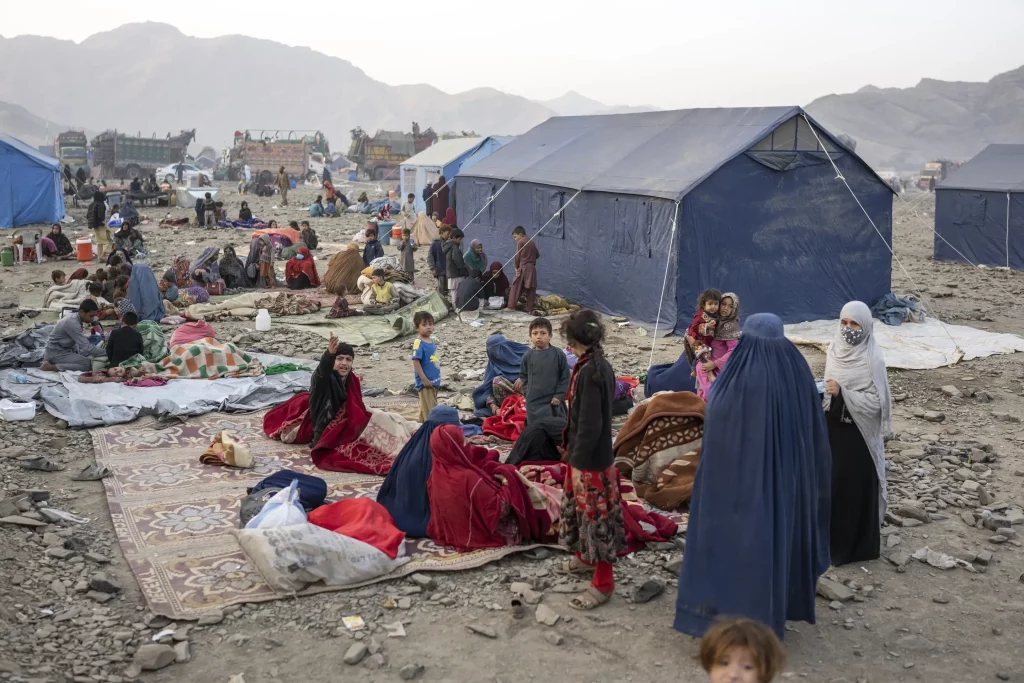
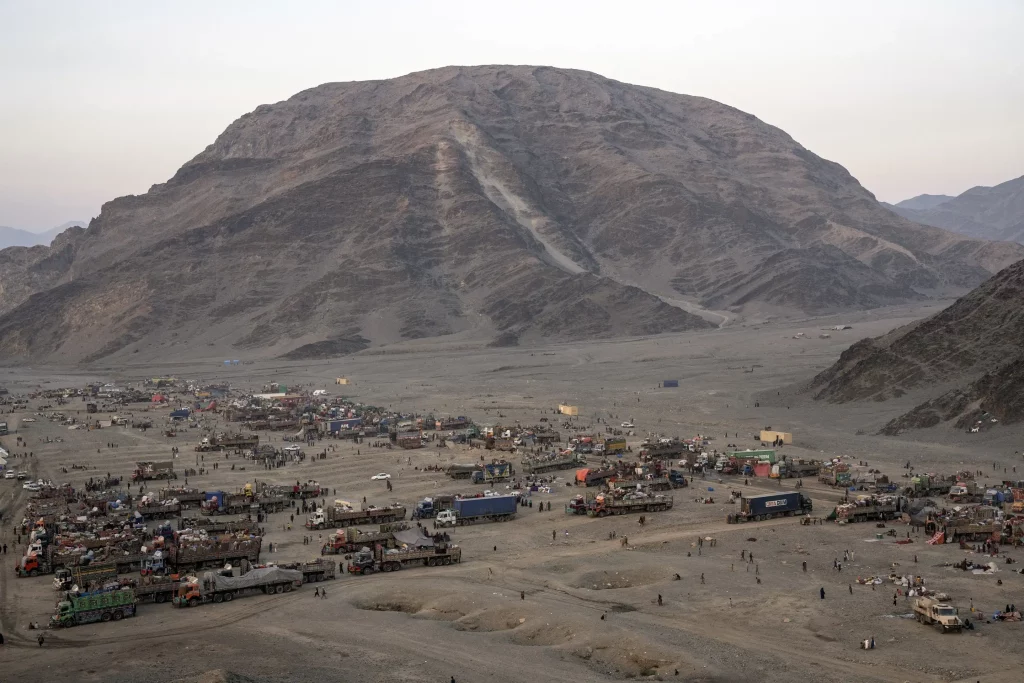
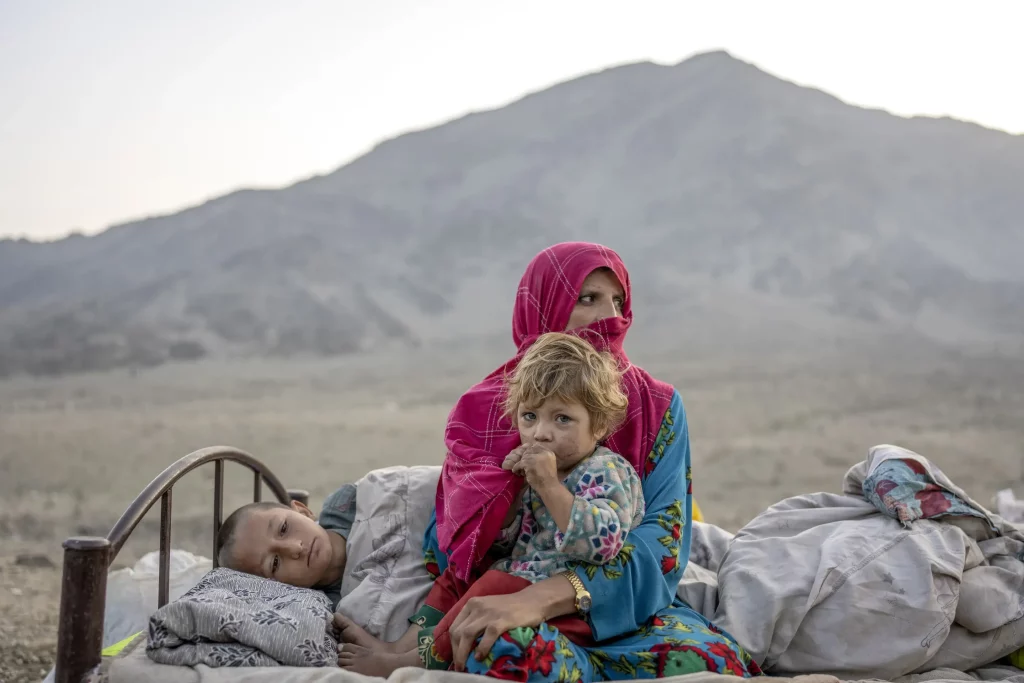
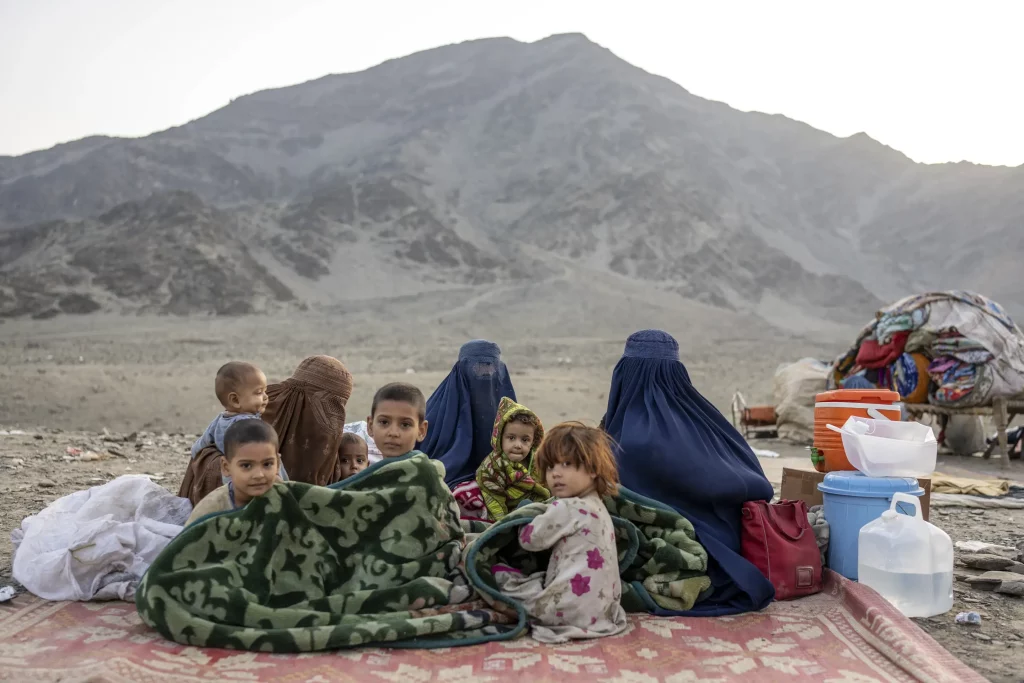
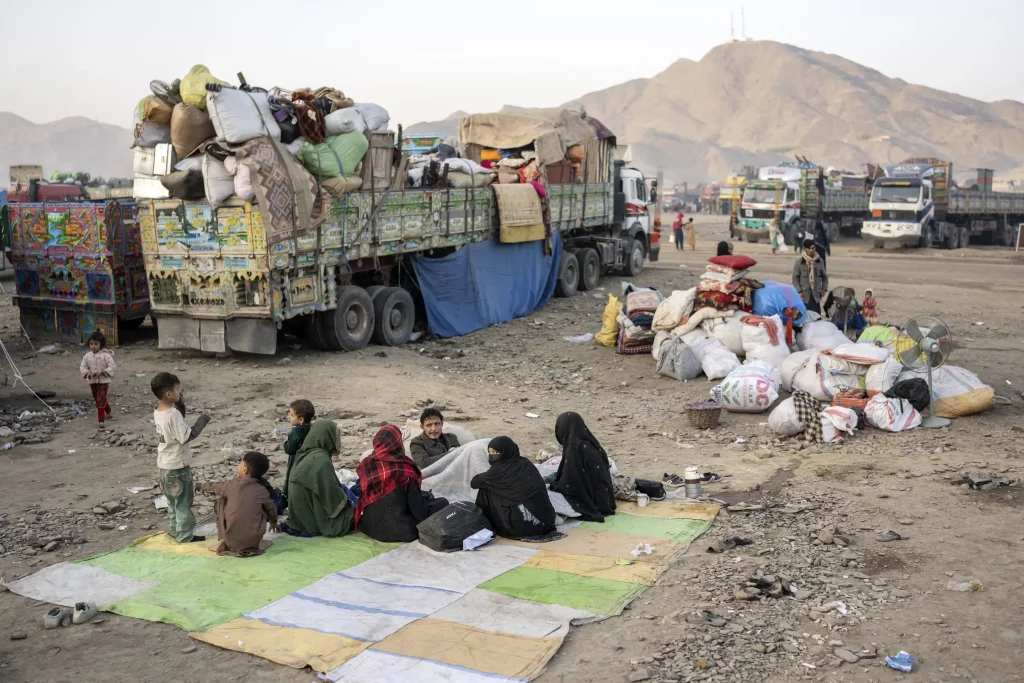
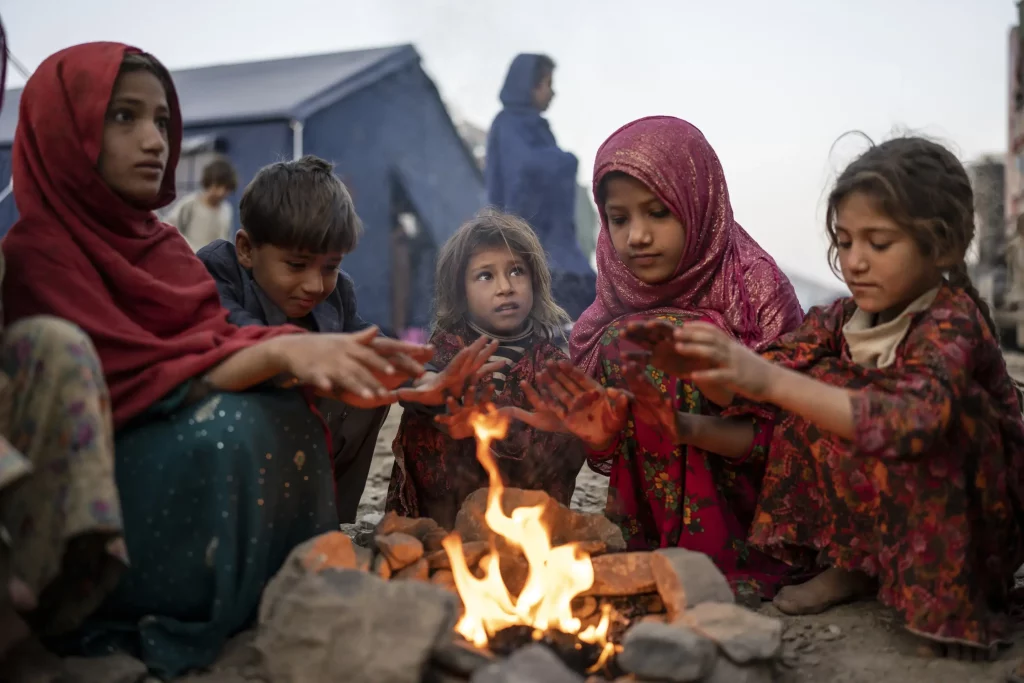
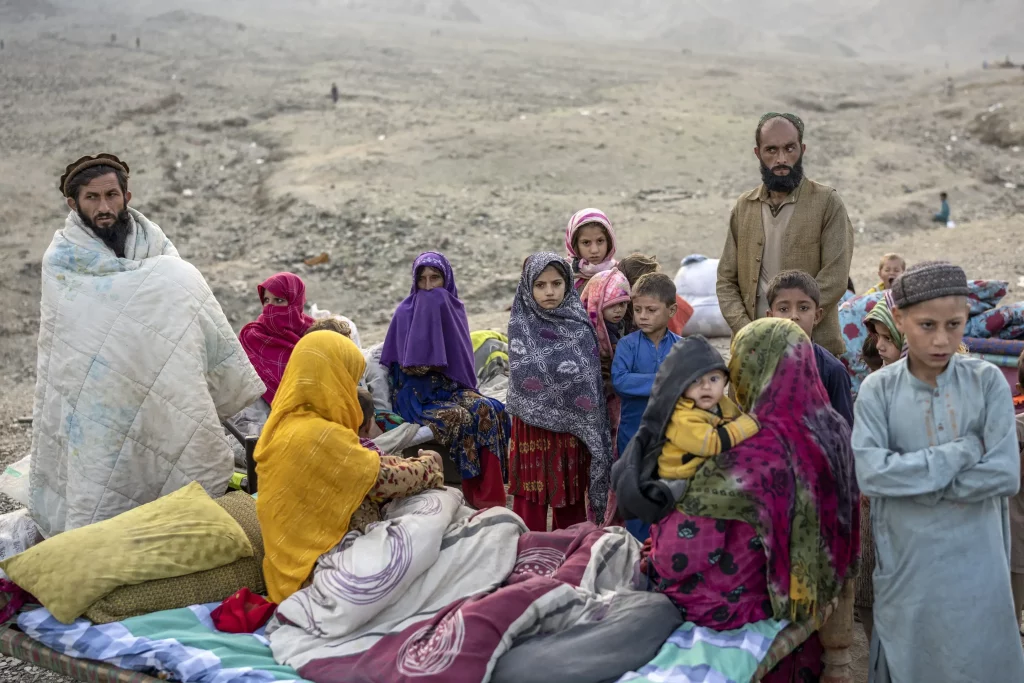
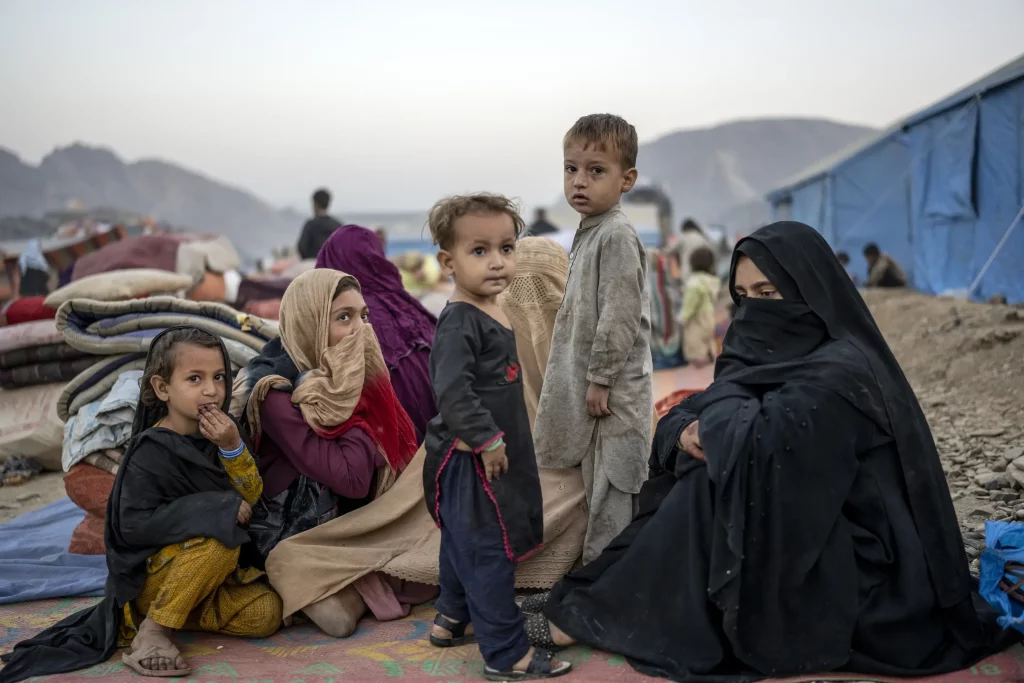
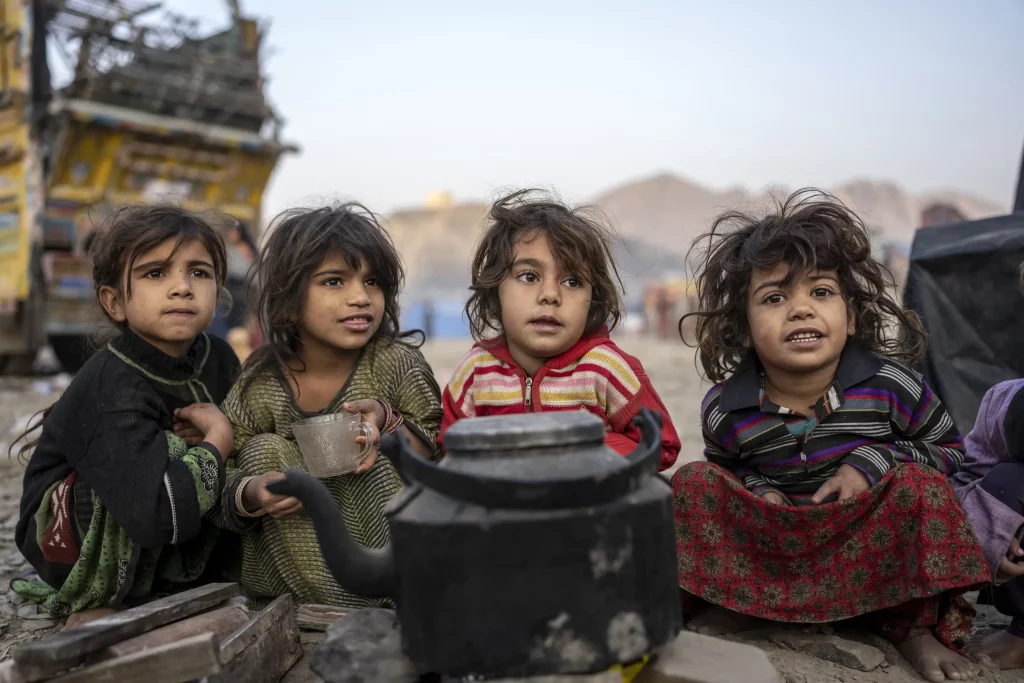

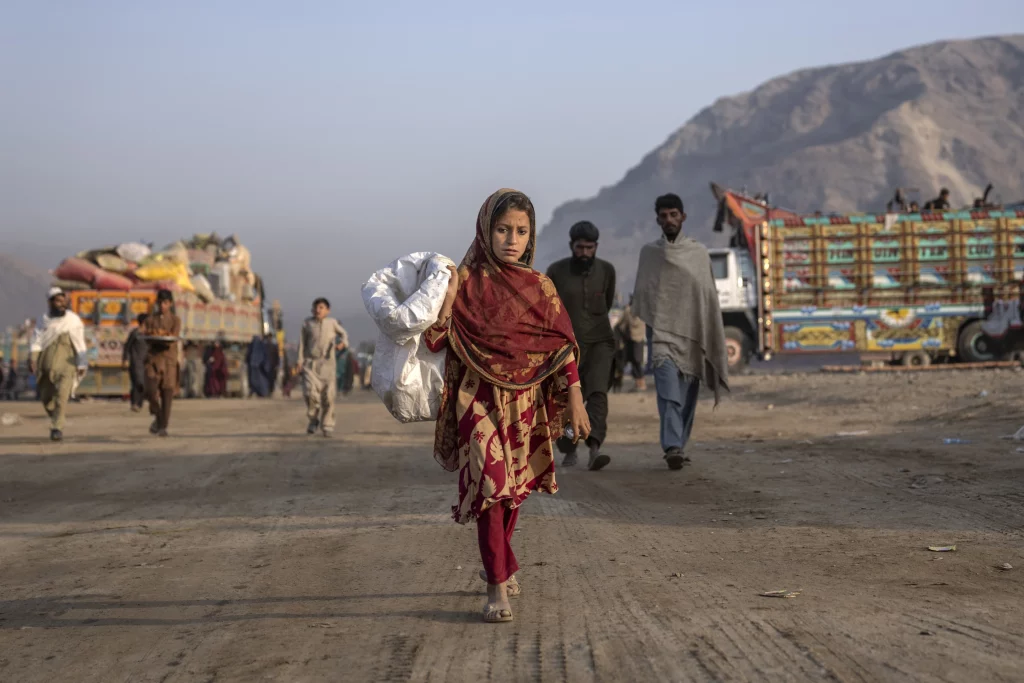
We demand that the Pakistani government end police abuse against Afghan refugees immediately, reverse its policy of deporting Afghan refugees, and work proactively to resume registrations of Afghan migrants. Ultimately, they should also be taking tangible actions to improve the political and economic situation in the country, which begins by honouring the Constitution and holding free, fair, and impartial elections.

